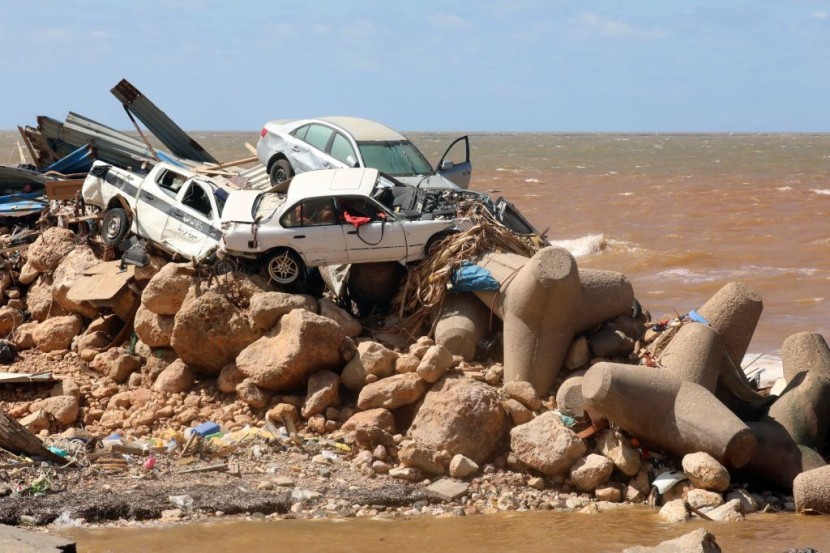Most of the fatalities in the flash floods that tore across Libya could have been avoided, according to the United Nations.
Doctors Without Borders (MSF) said Thursday, September 14, that 8,000 people in Libya had died, as reported by CNN. Buildings were wiped out by the seven-meter tsunami that smashed the northern coastal city of Derna, with many more remaining missing, the International Committee of the Red Cross (ICRC) said.
Last week, towns in the North African country were flooded by record-breaking rains, which broke two dams in the country's northeast and flooded the city of Derna.
Relief workers are struggling to deliver critical help amid political divides and debris from the tragedy.

Would've Prevented Many Deaths
Petteri Taalas, secretary-general of the UN World Meteorological Organization (WMO), said in a news conference in Geneva on Thursday: "If there would have been a normally operating meteorological service, they would have issued the warnings ... The emergency management of this would have been able to carry out evacuations of the people, and we would have avoided most of the human casualties," Reuters reported.
Although economic losses are inevitable, she argued that they may have been mitigated with adequate services.
Talaas said the WMO has attempted to communicate with Libyan authorities to improve these systems, but due to the country's precarious security situation, this has been challenging.
Since civil conflict broke out in 2014, Libya has been torn apart politically. The country is now divided between the internationally recognized government in Tripoli and the eastern parliament-backed administration in Benghazi.
After the devastating floods, each has given different estimates of the number of victims. The number of fatalities and missing persons has not been independently confirmed, though.
In Need of More Grave Diggers
After a seven-meter wave slammed the northern coastal city of Derna this week, ICRC's Libya Delegation Director Yann Fridez warned it would take many months, if not years, for residents to recover from the amount of destruction.
"This disaster was violent and brutal. A wave 7 meters high wiped-out buildings and washed infrastructure into the sea. Now family members are missing, dead bodies are washing back up on shore, and homes are destroyed," Fridez said.
As floods engulfed Derna, the ICRC sent aid workers to the city to help families with micro-economic activities. They also announced that they would be sending 6,000 body bags to forensic teams in the eastern city of Benghazi to "ensure dignified treatment of the dead."
The ICRC has noted that the destruction of roadways in flood-affected regions presents a major challenge to relief efforts.
Human rights groups have expressed a dire need for more grave diggers in Derna as they have been unable to keep up with the influx of remains. According to Abu Bakr Al-Rifadi, a local official, "The torrent waters caused the city of Derna to be divided into western and eastern halves," as reported by the Libyan state news agency LANA.
© 2026 HNGN, All rights reserved. Do not reproduce without permission.








